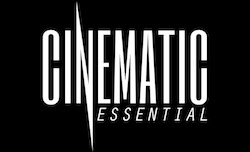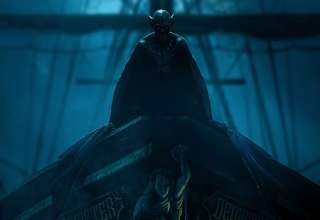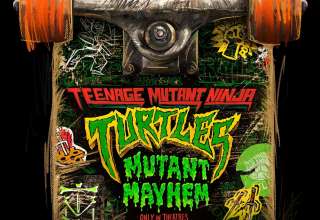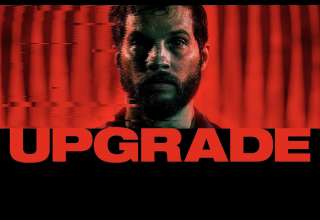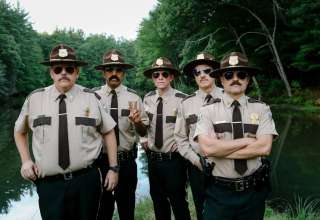I’ve met more than a few people who just started up there careers as directors. For me, it’s always interesting to see exactly how it feels after finishing their first film. That’s one of the things that I got to ask Dan Fogelman on his trip to Boston to promote Danny Collins, a film that stars Al Pacino in a somewhat unique role. Sure, he’s been in the entertainment business as a writer for a while now, but regardless of his experience in that position, getting behind the camera had to be different and present new challenges.
Cinematic Essential: What’s it like adding directing to your resume?
Dan Fogelman: It’s been cool. I’m mean, this is all different for me. The writer, they usually keep them in a closet somewhere. They don’t let him come out for these things. But yeah, it’s been great. I’m really proud of the movie. It was jumping in the deep end with (Al) Pacino starring in the title role for your first one. He’s really a great guy. I was almost going to bring him around the country with me, but it was too hard on scheduling. He really loves the film and we have a great relationship, so that made the whole process really worthwhile, beyond even the film. That Al likes the movie so much after everything he put into it is very meaningful.
Was it difficult working with so many established actors your first time out?
It was surprisingly not difficult. In many ways, it made it easier, because they’re all such pros. It’s like you look at the poster that’s sitting behind us and it’s got these five gigantic names on it – especially with Pacino, Annette and Plummer. These kind of legendary actors who are older than me, they happen to also be the nicest people. You always say it when you do this stuff (interviews). You pretend they’re nice, but these guys are genuinely nice. That makes a big difference. You spend a lot of time preparing for the film and know these people. And by the time you’re shooting, it’s no longer intimidating because they’re kind and nice and you know them. If I had walked into day one of shooting with Al Pacino, Annette Bening and Christopher Plummer and they were all dicks, I would have had a different level of fear. They’re as normal as can be except for the fact that they’re famous and well known.
How did directing come together for you?
I hit a point in my career where my last couple of scripts… I write them, I don’t try to sell them off or take a job to write them. I just write them so I’m in ownership of the material. I started in ’06 and things just started happening. I was blessed with all the movies getting made in one way or another. It’s hard to get one, and I’ve had like eight movies get made in the last seven years. Because of that, I spent a lot of time on set. I’ve gotten close with and known all the directors. I’ve had various degrees of access, but I grew up at Pixar learning how to make a movie. Then I spent a lot of time on sets and when all the movies were getting made, I was developing relationships with actors. So a lot of opportunities were coming at me to potentially direct something. “Would you want to adapt this book to direct it,” or “Would you like to go meet about possibly directing this movie.” It wasn’t something I was really chasing, then I wrote this script (Danny Collins), I felt very strongly that I didn’t want to hand it to anybody else, and that it was time. I felt I was at the experience level where I was comfortable now and the material spoke to me. I controlled it and sent it to Al (Pacino) saying “I want to direct this.” So it wasn’t like that was how I was going around.
When exactly did you write the script for Danny Collins?
This was the script I wrote after Crazy, Stupid, Love. Other movies got made, but they were written much, much, much earlier in my career and I think somewhat got made because I was getting movies made. I actually came upon the real life story after I had just finished Crazy, Stupid, Love. A lot of people really liked the movie, and I was kind of stuck. I didn’t know what to write next. As I was procrastinating at my blank computer is when I came across the real life story and I said “This is my next story.”
What did you see in the real story that made you want to turn it into a film?
I saw the story and I couldn’t stop thinking about the real life story of a guy who got a letter 40 years too late from John Lennon that was meant to be delivered four decades earlier. Couldn’t stop thinking about it. Not the guy’s real life story, because that wasn’t cinematic, but the what if of “Wow! What if there was a kid who really worried about his career going off the rails if he got rich and famous and what it would do to his art, and then John Lennon had written him a letter – his hero – that he didn’t get into he was in his sixties.” I couldn’t stop thinking about that guy. Then I started thinking about Pacino. Within a week of seeing that story, I sat down and had written that screenplay.
You wanted Pacino from the start, but were you concerned about him as a singer?
Al’s not a natural or gifted singer, but I was never really too concerned about it because neither is the character in the film. I thought it was very important that it clearly be Al and not a fake singer pretending. I also thought it was really important to see the struggle of a guy. One of his first lines of dialog in the movie is “I don’t know if you can call what I’m doing singing anymore,” and that was always kind of scripted. He says “I’ve been abusing my body for four decades.” The craft has left him, the craft that he may have once had. And even the song writing is a muscle that he hasn’t used in a while, but I thought it was really important, that’s what’s sweet about the journey. It’s what makes the song that he eventually writes really beautiful. It’s got the Leonard Cohen, Bob Dylan vibe to it. It’s a really stripped down, raw attempt for a guy to recapture something as an older man while he doesn’t have the same skill set that he had as a younger man. There’s something really emotional about that musically.
Looking at some of your films, would you consider yourself an old soul?
Maybe. I think there’s something romantic and cinematic about watching people in that chapter of their lives change, evolve, and fall in love. It’s something that appeals to me on a cinematic level. I’m turning forty next year, and these are my movie stars that I grew up with. I think we’re all defined by movies and music and things that we watched when we were 12 to 18 or 12 to 20. So for me, I’m more interested in doing a movie with Al Pacino at this chapter in his life than I am with the guy who played a superhero in a movie that came out when I was 35 and I didn’t attach to it in the same way. Pacino, Michael Douglas (Last Vegas) and Morgan Freeman (Last Vegas), these were the guys I grew up watching and these movies defined my adolescence, my teenage years, so it’s very exciting for me.
You’ve included pieces of your own life in some of your work before. Did you do that for Danny Collins as well?
There’s a lot of personal stuff in this movie. They say “Write what you know.” I know my family and I know the people in my life and the places I’m from. I don’t know any 65 year-old aging rock stars who are trying to find their musical identity, but I thought the journey of the movie early on was like this guy who’s “larger than life” and more famous than famous going to what I find to be like as regular and normal a place on Earth. The Woodcliff Lake Hilton where the movie is set, that’s the hotel that I grew up going to eight grade dances at and I’ve been a Best Man at four different weddings at that hotel. And the neighborhood where the movie is extensively set is where I grew up. So the idea for me was to use the life experiences to frame not Pacino’s life in the film, but the other people. He’s trying to become a regular person, so let’s create something that feels real. That was why Bobby (Cannavale) and Jen (Garner) are so great in the movie. They just feel like such a real world couple to me and so diametrically opposed to the lifestyle Danny Collins is leading at the outset of the movie. This kind of gated mansion, young girlfriend lifestyle that none of us can identify with.
I read that Bobby Cannavale came in later in the film to take on the role of Danny Collins’ son. Who else was attached to it before him?
Sometimes the internet says people are attached when they really aren’t attached, but originally (Steve) Carell was involved in it very early on coming off of Crazy, Stupid, Love and was considering playing the son. It was just schedules. It happens so much. Unfortunately, because of Crazy, Stupid, Love and the sell of the original incarnation of the script was a big newsworthy entertainment story, things that get reported that happen on every movie that aren’t real. Then it’s a matter of finding the financing and things and the timing, so people come and go. Al wanted Bobby very early. They’ve done Glengarry Glen Ross together and I’ve been an admirer of his since Station Agent. So it was just a matter of would we be able to pull of the financing for that version of the film. It’s such a big part of the film. It’s such extensively where you end the movie and the core relationship of the film. I’m so glad it worked out, because there’s a genetic coding between them I think, they feel like father and son, in real life they love each other like father and son. They have a very close relationship. Al really admires him. As an actor, Al has given him the generational seal of approval. He really thinks he’s the real deal, which I do to. He’s a heavyweight actor. He has a real alpha male, masculine presence which is not common in film. Bobby’s a big guy to begin with, but he’s not as big as he feels on camera. It’s something about the way he photographs. He’s an alpha male dude, you know? And at an age and type that doesn’t necessarily get represented. Our movie stars tend to be a lot prettier and there’s just a real “man’s man” thing there. That was very important to this film.
Bobby and Al are both known for playing characters with voluminous personalities. There different here.
Both Bobby and Al are both known in their respective careers for these big showy performances. Whether it’s Al in Scarface or Scent of a Woman, or whether It’s Bobby killing people in Boardwalk Empire. Most of there scenes together are very intimate and quiet scenes. Almost “pin drop” quiet. They have a seven minute scene in the tour bus. You don’t make that kind of scene in a movie anymore. There are two camera angles, two sizes. We just spent the whole day shooting it and letting the two of them act with one another. When you watch in a theater, it’s a really fun scene to watch, because it’s a dangerous scene. It has no business working. It should be a groaner for people. And the two of them… it’s so quiet in that movie theater. Then another scene plays like a horror movie in terms of the tension. Again, it’s another scene where neither man is raising his voice. They’re both talking, just having dialog and it’s intense. I like that they had a chance to flex that muscle when they’re normally known for big, showy stuff. They’re explosive actors. With that, you get big, explosive parts and get known for that. Which isn’t a bad thing, but it’s not all they can do either.
Did you know Pacino before you wrote the role for him?
I was writing it for Pacino, but I had never met Pacino. I was writing it imagining for Pacino. Al admitted that there are places where the line between Danny and Al blur and there are places where they’re very different. I referenced an older version of Jerry Maguire for this in this way: Tom Cruise informed Jerry Maguire just on his sheer star power, things that come with Tom Cruise and the handsome and the look and all of it. It helped make Jerry Maguire feel like a bigger movie than it actually was. I wanted that. I thought it would be really interesting seeing a guy start the movie in the first twenty minutes where it’s a real quiet dad movie. It doesn’t feel like a huge comedy in any way. This guy’s really in a depressed, bad state. You’re actually sinking into a really quiet Al. An Al you haven’t seen in a while. A quiet, sad clown not really putting on much. Then, as he gets to the letter, he starts coming alive. We modulated how alive he comes so it never got too crazy, but it becomes fun for the audience to watch Al get that charisma, that spark, that Pacino swagger, but never take it too far. I wrote it for him so he could flex all of his muscles a little bit.
So you’re giving him a chance to do what people know him for while also allowing him to do stuff people haven’t seen in a while?
Al is a New York theater actor at heart. He’s a Shakespearean theater actor. He’s one of the most interesting small actors out there, but he’s just not known as much for it because as he says, people like putting a gun in his hand and given him big things to say and it works really well. As a country and the world, we ate it up, but he’s very comfortable doing a David Mamet play or a very quiet play on stage by himself, but you also don’t want to rob him of all the things that we love: the charisma, the charm and the ability to pull of a big moment. You want that to. I hate the movies that are like “Here’s what you want, and I’m not giving you any of that and you gotta give it a great critical review even though you’re getting no pleasure from this f*cking movie.” So it’s like no, I don’t want to see Al Pacino with a gun to his head for a half hour just being depressed and quiet. That’s the line. I told Al that if we get this right I think it gets you the ability to do everything in a two hour span that you’re so good at.
Your first several movies were geared toward kids. Ever worry about being typecast because of that?
I love writing animated movies, but at a certain point, I also wanted to do live action stuff as well. I mean, I’d love to go and write another animated movie now. In the middle of all of these, I wrote Tangled and went back to it. It’s such a fun process. It’s really time intensive. To do an animated film nowadays is years of work. Being there everyday. So as your career gets bigger and longer, if you’re going to do an animated movie, you need to know that you’re devoting yourself completely to it and this was an area I wanted to focus on. But yeah, you can get typecast. I try to shake it up a little. Like Crazy, Stupid, Love and this film are most in the zone in what I set out to do when I decided I was going to do this for a living. Tonally, I don’t know what you call it. It’s like I like making movies that can play on three thousand screens but actually be the best version of the movie. And like my dad really likes this movie, my fiancee’s parents really like this movie and my fiancee really likes this movie. I like those types of films. I don’t know what that all means, but I’ve been thinking about it a lot with all these animated films. You’re getting all this leeway to do all this stuff that’s unabashedly heartfelt and sweet. In our increasingly cynical world with more and more internet, it’s harder to put a live action adult movie out that wears its heart on its sleeve, because you get hit for it. There’s just no way to pull it off without getting hit. To make a commercial, heartfelt film is scary, but I’m gonna keep trying. I’m gonna keep doing them. I don’t know what the market is for them anymore, but it’s what I like and you gotta keep chasing that.
How did you get John Lennon’s songs? How difficult was it?
I don’t remember what the end result was, but I know that everybody in the movie, all the people who contributed to the movie from the actors on down did it out of the place of liking the movie and the project. So, it was easier than I thought it would be only in that I never thought it would be feasible or possible. As I was saying last night, I was putting all these songs in my cut, and everybody including my producers, particularly may main producer, Jesse, who’s been with me for six years on this project was like “D*mn what are you doing to yourself? You gotta start making a list. Prioritize them at least.” Then Yoko’s camp responded. I think they saw the movie for what it is. The underpinning of the movie is a bit of a love letter to Lennon, He’s kind of the voice carrying the through line underneath it all subconsciously. They worked with us. One day I got the call saying I could leave all the music in the film.
How would you describe Danny Collins in terms of its comedic style?
It’s character driven. It’s not joke driven or hard comedy. My favorite laughs in this movie are where Pacino has that scene with Annette Bening. I know where are biggest laughs are, but he goes “I had a bad day. My grown son who I’ve never met before told me to f*ck off and die.” And Annette Bening takes that great pause and goes “It was every reservation that got screwed up in the computer.” It’s such a gigantic laugh in the movie theater because it’s such a smart performance from her. It’s a smart person’s joke. The whole audience is getting it. I’m not saying this movie is “high-brow” art, but it’s a dialog joke, it’s a heady joke. I like that. When that works, when people get the biggest laugh in the theater in every scene in every city, in here Pacino goes “Have I ever let you down before?” That’s about his character. It’s not about a witty line. If you laugh at that, it means your getting the movie. That’s exciting as far as laughs go. Then it’s just finding the line.
Will you be working on this kind of stuff in the future?
I’m doing a new script (Honeymoon with Harry) right now and it’s heavy, heavy, heavy subject matter. Like death and trauma, but it’s also funny and needs to get funny after some heavy stuff. This is the new challenge. It’s like how on Earth am I going to make people laugh after this because it’s weighty, weighty sh*t. And I think that’s really fun if you can pull it off. Terms of Endearment is one of my all-time favorite movies, because that movie really makes me laugh. Jack Nicholson is as cool a movie romantic hero as there was in the 1970’s. Then at the end you really weep. My mom used to cry so hard my sister and I would make fun of her. We’d put the movie on just to watch her because we thought it was funny. If you can make anybody go through any version of that experience during two hours of a movie, that to me is the magic trick as opposed to some of these really incredible movies that win a lot of awards, that’s the magic trick I’m most interested in: Can you make people feel and laugh in the same two hour span and make it feel whole so it’s not schizophrenic? You gotta find the line.
How do you make sure you’re accomplishing that?
I like sitting with all these audiences and watching this movie while I was just cutting it and I was screening it for so many people. I made people squeeze in couches, screen it for thirty people at a time. Thousands of people had seen this movie by the time I locked a cut. I can sit with people and feel when I’m losing people. I don’t know how, but I can feel the energy, the laughter and things. I can feel when they’re detaching. I literally watch. I sit in the back and see when somebody’s doing something with their phone and I see when it’s happening collectively at the same point. I grill people afterward. I think it’s important, because you can start losing people. You gotta be careful with that. It’s an interesting process.
How do you feel about directing now after directing your first movie?
It’s hard. It’s a lot of work. It’s exhausting, but I like it a lot. I’ll always be a writer first, but I can’t imagine – never say never – but I can’t imagine ever directing something I don’t write. I don’t think I’m that type of director. That’s not my skill set. But I enjoy doing it with the right movie. If I write something and I like it, will I want to direct the rest of them? Really, when it’s the right director… I just did this movie that won all of Sundance; I produced it. It’s called Me, Earl and a Dying Girl. It’s exceptional. This director is so talented. He’s going to be my generations next important film director. I think 25 years from now, he’s my generations (Martin) Scorsese. I think he’s that good. I didn’t right the script, but the novelist adapted his own book and I taught him how to write the screenplay as we worked through the script together over the course of years. I put a lot into it, then the director took it and made his own version of it. It was such a cool process watching this movie. The first time I saw this movie, I was like “Whoa!” He took it and elevated it, did it all differently and it’s artistic and it’s cool and I love that. I like that part of the process too, but it can be hit or miss. A good script can turn into a bad movie and a bad script can turn into a really good movie, but I like it. It’s a lot of decision making.
What’s next for you?
I don’t know. I like things about the human condition and things that feel real. I like working with big cast. I like working with both young and established stars and letting them do something a little bit different. I like when you can put Ryan Gosling in Crazy, Stupid, Love and Al Pacino in this film. It’s exciting. It helps cut through the clutter of all the stuff that we have to watch on t.v. It’s like “Alright, you piqued my interest. Al Pacino is going to portray an aging rock star? I’m curious.” I think this is my wheelhouse of where I want to live. I’m writing this movie (Honeymoon with Harry) right now that I love the script for so I’m hoping it gets made however it gets made. I don’t know about directing it, I don’t know what winds up happening there. That’s next, but what goes beyond that I’m not sure yet. Bradley Cooper, we’ll see if he likes the script, because he’s attached to direct that one himself. After that, I don’t have another project. There’s one script that I have out there that I’m considering doing that I wrote. I might reformat it a little bit and do that myself.
